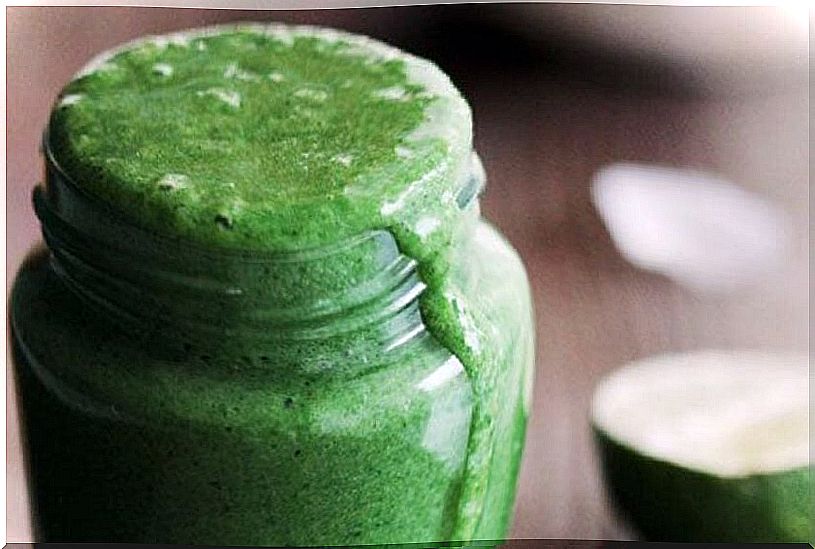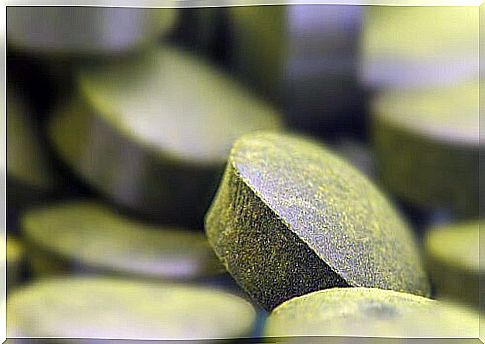7 Benefits That Spirulina Brings To Your Health
You must not forget that it is not a miracle supplement. Therefore, it should not be used as a substitute for medical treatment to treat any illness or discomfort.

Spirulina is an algae that has become popular in recent years, as many benefits are attributed to it. It is believed that it could provide us with nutrients, as well as fill in some deficiencies in the current diet.
However, although spirulina could represent a functional food with possible beneficial effects on human health, more research is needed to evaluate the effect of foods that contain spirulina.
Find out more about the benefits of spirulina.
What is and what are the benefits of spirulina?
Spirulina, whose scientific name is Spirulina maxima , is a microscopic blue-green algae, obtained from chlorophyll and phycocyanin.
This supplement offers a wide variety of nutrients, such as vitamins, minerals, essential fatty acids, protein and nucleic acids, which are also positively digested and assimilated in the body.
However, remember that it is a supplement and in no way replaces a balanced diet with quality foods from all groups. We recommend always consuming certified organic spirulina, to ensure that it does not contain toxic substances that can be harmful to health.

1. Balance the weight
Spirulina is believed to help balance weight depending on when you take it :
- People who want to lose weight should always take it before meals, to enhance its satiating effect.
- People who want to gain weight should always take it after meals, to improve and add the assimilation of nutrients.
On the other hand, in this study the subjects were divided into two groups: obese and non-obese. In this last group, spirulina supplementation showed a significant reducing effect on the concentration of total cholesterol and LDL cholesterol and a significant increase in the total antioxidant level. However, these effects were not observed in the obese group.

2. Provides energy
Thanks to its high content of nutrients, among which vitamin B12 and iron stand out, which in this case is easily assimilated, spirulina could serve as support in cases of anemia. This same property affects our energy levels and helps us fight states of fatigue, exhaustion and stress.
There is evidence that microalgae, especially spirulina, are nutritious functional iron fortifiers that can supply intestinal iron.
3. Delays aging
Its high content of antioxidants of various types prevents cellular aging caused by free radicals, not only at the brain level, but also in terms of the health of the skin, eyesight, hair, etc.
Spirulina, according to some research, has great potential for several health applications, including the reduction of premature aging of the skin.
4. Raise your defenses
It is a supplement that could be taken in seasonal changes, to prevent colds, flu and allergies, since it is believed that spirulina enhances the immune function of the body.
5. Take care of the heart
Spirulina could help prevent cardiovascular diseases, such as hypertension, cholesterol, high triglyceride levels, etc. If we have a genetic predisposition to suffer them or we want to improve the analytics, we could take this algae together with the recommendations of our doctor.
6. Protects bones and joints
Its wide range of minerals, which complement each other, makes this algae a good supplement for those who suffer or may suffer from joint and bone diseases, such as arthritis or osteoporosis.
In this study it was concluded that spirulina is capable of slowing down the changes produced by induced arthritis. Spirulina’s suppressive effect could be attributed, at least in part, to its anti-inflammatory, antioxidant, and anti-angiogenic properties.
7. Improves mood
Its nutrient content, among which tryptophan stands out, positively affects our nervous system, in a way that could help us improve our mood.
Cocoa, for example, is also rich in tryptophan. In addition to its role in protein formation, tryptophan is a precursor to serotonin.
Spirulina: How is it taken?
We can find spirulina in powder, or in capsules or tablets. The recommended daily dose is between 3 and 5 grams. However, it can be increased if we need it, although we recommend always consulting a doctor. We can start with this amount and gradually increase.
Pay attention to the body’s response. Also, you should not forget that it is not a miracle supplement. Therefore, it should not be used as a substitute for medical treatment to treat any illness or discomfort.
If its taste does not bother us, we can also buy it in powder form, which is much cheaper. You can add it to smoothies, vegetable creams, juices and all kinds of recipes that we can think of.









